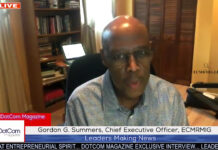Bartleby, a character immortalized in Herman Melville’s novella “Bartleby, the Scrivener: A Story of Wall Street,” is a mysterious and enigmatic figure whose presence and actions leave an indelible mark on the narrative. Melville’s exploration of Bartleby’s character extends beyond the conventional bounds of a typical employee, delving into the realms of human psychology, isolation, and the complexities of modern urban life. Bartleby, introduced as a scrivener hired by the story’s narrator, becomes a central figure around whom the narrative unfolds.
Bartleby’s first appearance in the narrative is as an employee at a law office on Wall Street. Initially, he is portrayed as a diligent and efficient worker, diligently copying legal documents with remarkable precision. The narrator, an unnamed lawyer who employs Bartleby, describes him as an unremarkable, pale man with an “indeterminate aspect.” However, as the story progresses, Bartleby begins to exhibit peculiar behavior that sets him apart from his colleagues. The first signs of this peculiar behavior emerge when Bartleby responds to routine work requests with the phrase “I would prefer not to.” This seemingly innocuous refusal becomes a refrain that echoes throughout the story, gradually transforming Bartleby from a typical scrivener into a symbol of defiance and passive resistance.
The transformation of Bartleby from a diligent employee to a symbol of passive resistance raises questions about the nature of his character and the underlying motivations behind his actions. Melville skillfully crafts Bartleby as a complex and elusive figure, leaving readers to interpret his behavior and motivations. The refusal to engage in traditional work tasks becomes an act of nonviolent rebellion, challenging the societal norms and expectations that govern the workplace. The use of the phrase “I would prefer not to” serves as a subtle but powerful tool through which Bartleby asserts his autonomy and rejects conformity.
As the narrator grapples with Bartleby’s unconventional behavior, a sense of sympathy and intrigue develops. The narrator’s attempts to understand Bartleby’s motives lead to a series of failed interventions, including offering him additional responsibilities and attempting to understand his background. However, Bartleby’s refusal to disclose personal details or engage in social interactions reinforces his enigmatic nature. The narrator’s growing obsession with understanding Bartleby becomes a reflection of the broader societal fascination with the inexplicable and the desire to categorize and comprehend unconventional behavior.
Bartleby’s presence in the workplace becomes a disruptive force that challenges the established order. The workplace, symbolized by the law office on Wall Street, is portrayed as a microcosm of society, governed by rules, routines, and hierarchical structures. Bartleby’s passive resistance disrupts this order, introducing an element of chaos that the narrator and his colleagues struggle to reconcile. The narrative explores themes of alienation, isolation, and the dehumanizing impact of urban life, portraying Bartleby as a figure who defies societal expectations and withdraws into his own enigmatic realm.
In his refusal to conform to societal norms, Bartleby emerges as a symbol of existential rebellion. The phrase “I would prefer not to” transcends its immediate context, evolving into a mantra that encapsulates a broader rejection of societal expectations. Bartleby’s actions challenge the notion of work as a means of self-realization and success, highlighting the dehumanizing aspects of labor within a capitalist framework. His passive resistance becomes a form of protest against a system that reduces individuals to mere cogs in the machinery of commerce.
The ambiguity surrounding Bartleby’s background adds another layer of complexity to his character. Little is revealed about his past, and attempts to uncover his history are met with resistance. This deliberate ambiguity allows readers to project their interpretations onto Bartleby, turning him into a blank canvas onto which various societal concerns and existential questions can be projected. Bartleby becomes a cipher through which Melville explores the human condition, inviting readers to contemplate the isolation and existential despair that can result from navigating the complexities of urban life.
Bartleby’s withdrawal from traditional societal roles also raises questions about mental health and the impact of societal pressures on individual well-being. His preference for inaction and his eventual refusal to leave the law office suggest a retreat into a self-imposed prison. The story invites readers to consider the toll of modern urban life on mental health and the ways in which individuals cope with the pressures of societal expectations. Bartleby’s descent into passive resistance and isolation serves as a poignant commentary on the toll that conformity and the relentless pursuit of success can take on the human psyche.
Bartleby’s ultimate fate, confined to the prison-like walls of the Tombs, reinforces the narrative’s exploration of societal indifference and the dehumanizing consequences of bureaucratic systems. The Tombs, a literal and metaphorical prison, becomes the final destination for Bartleby, highlighting the harsh realities faced by those who resist societal norms. The story does not provide a clear resolution to Bartleby’s enigma, leaving readers to grapple with the implications of his fate and the broader societal commentary embedded in the narrative.
Bartleby’s character becomes a vehicle through which Melville delves into existential questions, inviting readers to ponder the consequences of societal pressures on individual autonomy. His withdrawal from traditional roles, ambiguous background, and ultimate confinement in the Tombs serve as poignant metaphors for the challenges individuals face when navigating the demands of a conformist society. The narrative prompts reflection on the toll of modernity on mental health, the impact of relentless pursuit of success, and the dehumanizing consequences of bureaucratic systems.
The enduring allure of Bartleby lies in his enigmatic nature and the open-ended questions surrounding his character. Melville deliberately leaves aspects of Bartleby’s background and motivations shrouded in mystery, inviting readers to interpret and project their own reflections onto this literary figure. As a result, Bartleby becomes a timeless symbol that resonates with audiences across different periods and cultures.
“Bartleby, the Scrivener” continues to captivate readers and scholars, prompting ongoing analysis and discussion. The character’s legacy extends beyond the novella itself, sparking conversations about the complexities of human behavior, the nature of resistance, and the societal structures that shape individuals. Bartleby’s mantra, “I would prefer not to,” echoes through the corridors of literature as a powerful reminder of the human capacity for nonconformity, resistance, and the perpetual search for autonomy in the face of societal expectations.
In conclusion, Bartleby, the Scrivener, is a compelling exploration of human psychology, societal expectations, and the complexities of modern urban life. Through the character of Bartleby, Herman Melville crafts a narrative that transcends its 19th-century setting, offering a timeless commentary on the challenges of navigating a society that demands conformity. Bartleby’s passive resistance and enigmatic presence invite readers to reflect on the consequences of societal pressures, the dehumanizing impact of urbanization, and the struggle for autonomy in the face of systemic expectations. As a literary figure, Bartleby continues to captivate readers, inviting ongoing interpretation and analysis of his symbolic significance within the broader context of existential literature.

















